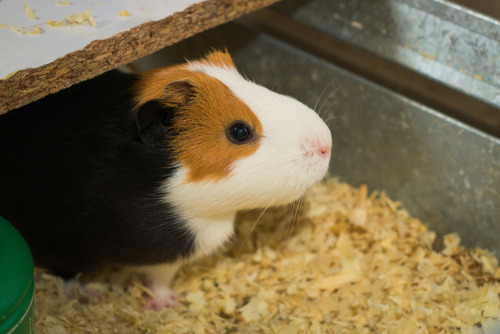Guinea pigs, also known as cavies, are popular pets cherished for their friendly and sociable nature. Many families consider adopting a guinea pig but often wonder, “How long do guinea pigs live for?” The lifespan of a guinea pig can vary significantly based on factors like genetics, diet, care, and environment. In this blog, we’ll explore these factors in detail to help you understand what to expect and how to help ensure a long, healthy life for your pet. If you’re looking for personalized advice or have specific questions, call Cheyenne Mountain Animal Hospital in Colorado Springs, CO, at (719) 475-1314.
What Influences the Lifespan of a Guinea Pig?
Genetics and Breed Variations
The breed of a guinea pig can have a noticeable impact on its lifespan. For instance, certain breeds like the Silkie and the Peruvian tend to have slightly different life expectancies due to their unique genetic makeup. Understanding the genetic heritage of your guinea pig can provide insights into its potential longevity.
Quality of Care and Housing Conditions
How long guinea pigs live is greatly influenced by the quality of care they receive. Proper housing that protects them from extreme temperatures and provides ample space for exercise is crucial. Guinea pigs need a clean, safe environment and a well-maintained habitat to thrive and live longer lives.
Optimal Diet for a Guinea Pig
Essential Nutrients and Supplements
A balanced diet rich in vitamin C is essential for guinea pigs, as they do not produce this vitamin naturally. Ensuring a diet that includes fresh hay, quality pellets, and a variety of fresh vegetables can significantly impact their health and longevity.
Common Dietary Mistakes to Avoid
Overfeeding treats or providing inadequate amounts of fiber can lead to serious health issues in guinea pigs. It’s important to understand the dietary needs specific to guinea pigs to avoid common mistakes that could shorten their lifespan.
Health Care and Regular Veterinary Visits
Regular check-ups with a veterinarian can help catch and address health issues before they become severe. Preventative care is key to extending the life of a guinea pig and ensuring they remain healthy throughout their lives.
Signs of Aging and Health Issues to Watch For
As guinea pigs age, they may develop conditions such as dental disease, respiratory infections, or diabetes. Being aware of the signs of aging and common health issues can help you provide the necessary care to maintain their quality of life.
Enrichment and Social Needs
Guinea pigs are social animals and thrive in environments where they can interact with companions. Lack of social interaction can lead to stress and health problems, affecting their overall lifespan.
Enrichment Activities to Promote Health
Providing enrichment through toys, tunnels, and opportunities for safe exploration can help maintain a guinea pig’s mental and physical health. Active and engaged guinea pigs are likely to live healthier and longer lives.
Maximizing Your Guinea Pig’s Lifespan
Understanding “how long do guinea pigs live for” involves more than just knowing their average lifespan; it requires a commitment to comprehensive care. By focusing on proper diet, regular veterinary care, social interaction, and a suitable living environment, you can help ensure that your guinea pig enjoys a long, happy life. Remember, if you have any concerns or need advice, Cheyenne Mountain Animal Hospital is just a call away at (719) 475-1314. Let us help you provide the best care for your pet guinea pig.





